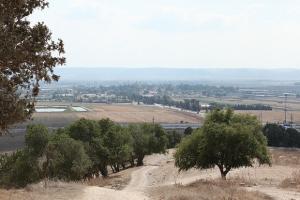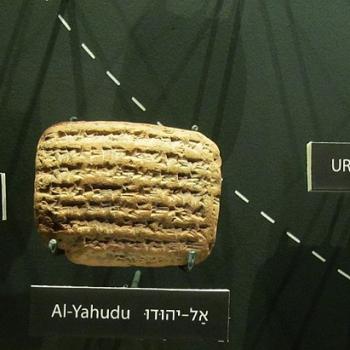We see a hideous rush to judgment in the stoning of Naboth in 1 Kings 21. Likewise, we see a similar rush to judgment in today’s knee-jerk dismissals of those who are accused of sexual misconduct. While most of these recent charges are probably true, the apparent denial of due process, the “execution without trial” (as it were), does violence to our sense of justice. It casts a cloud over whatever actual justice gets done in these cases.

In a land grab by Queen Jezebel for her husband, Naboth is accused by two “Sons Of Belial” (“S.O.B.’s” – see my post http://www.patheos.com/blogs/tomhobson/2017/10/belial-and-sons/) of cursing God and the king. The first is a slam-dunk capital crime (Leviticus 24:16). The second has no stated penalty (Exodus 22:28), but to pronounce a solemn curse on a king amounted to attempted assassination. Serious charges, indeed.
The real reason Naboth is a target here is because he refuses to sell or even trade away his vineyard when King Ahab makes him an offer. He insists that his land is an inalienable inheritance from God, which it was (Leviticus 25:23-24). Ahab knows that he has no power from God to coerce such a sale. But Jezebel has no such God-hangups. She is a Canaanite, and using the law to kill an innocent man is no problem to her. Such a plot probably never crossed Ahab’s mind, but giving her his signature machine makes him guilty of cold-blooded murder in the eyes of God (1 Kings 21:19).
“Hang the evidence (or lack thereof)! It’s the seriousness of the charge!” What is disturbing here is not merely that the charges against Naboth are false, but that there seems to have been no attempt to examine the witnesses, or even a jury vote. Perhaps these did take place, but we are not told so. The word of the accusers is accepted without question, leading to a tragic rush to judgment.
That’s what’s so chilling about the scene today. It is dangerous when one entire category of people is automatically believed (e.g. “women never lie” about sexual abuse). It is equally dangerous when threats and intimidation can prevent evil from ever being brought to light, which tragically has been the case for too long.
God abhors any place where one class is automatically believed, and/or where one class automatically gets disbelieved. We must make the effort to discern between malicious gossip, and evidence that demands a verdict. And we must make it safe for genuine victims to come forward without fear of being shamed or of character assassination.
Our current atmosphere of accusations eerily resembles the days of Herod, where a paranoid Herod the Great would promptly put people to death on the mere suspicion of disloyalty, which led to the use of false charges as a popular way to get rid of disliked rivals. As was said recently, this year is not the year to hang the mistletoe at the office Christmas party.
God’s people developed safeguards to prevent injustice to the accused. Deuteronomy 19:15-20 requires multiple witnesses, and threatens false accusers with the same penalty that they tried to inflict on the accused. Cross-examination of witnesses produces an acquittal in the adultery trial of Susanna, where the witnesses contradict each other on under what kind of tree the offense took place (Susanna 1:52-59). While the account is probably fiction, it no doubt gives us an example on how witnesses were tested for reliability in Israelite courts in the late intertestamental period.
The rabbis of Jesus’ day developed a long list of criteria to disqualify witnesses as biased or unreliable (Mishnah, Sanhedrin 3:3-5). A long list of relatives, plus friends and enemies, were excluded from serving as witnesses or jurors. The testimony of tax collectors, dice players, loan sharks, pigeon flyers, and those who ran the black market on seventh year produce was excluded. Witnesses were relentlessly cross-examined (Sanhedrin 5:1-3) as to exactly when, where, and how the offense took place, with zero tolerance for contradiction.
Safeguards went out the window at the trial of Jesus. It was the proverbial “hearing, where no one was listening.” It was a predetermined guilty verdict, desperately searching for a charge. Earthly speaking, Jesus’ death was a quintessential rush to judgment.
In the volume Aboth de Rabbi Nathan (chapter 19), Rabbi Joshua’s followers watch while he talks all alone with an incredibly beautiful woman, takes off his outer garment and prayer shawl, goes with her behind locked doors, then comes out and takes a ritual bath. He asks his followers if he had done anything evil. They said no, assuming that there were perfectly valid explanations behind each of his questionable actions. Then Joshua makes his point: “Judge every person with the scales weighted in their favor.”
A bit too radical for me (I certainly wouldn’t follow his example!), but here we have definite presumption of innocence until proven guilty. Indeed, the rabbinic standards for capital trials in the Mishnah are so strict that Rabbis Tarfon and Aqiba said, if we were in charge, no one would be put to death, which led one rabbi to complain, “They would multiply the shedders of blood in Israel.” (Mishnah, Makkoth 1:10)
The need for justice is victims of sexual abuse is so important, that it must not be undermined by denying justice to the accused. The stoning of Naboth is a grim reminder to us of what happens when we rush to judgment.












